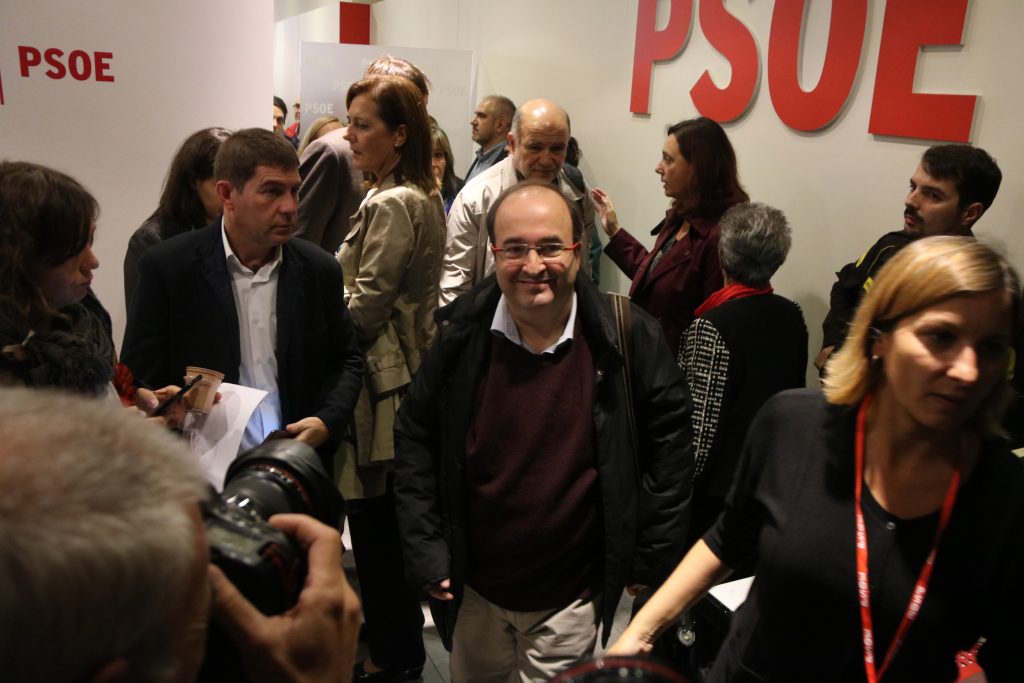25.10.2016 - 11:58
|
Actualització: 25.10.2016 - 13:58
‘We will disobey and we are willing to face the consequences’, stated this Monday Catalan Socialist Party (PSC) leader, Miquel Iceta. He was referring to the PSC’s will to say ‘no’ to the reinvestiture of current Spanish President Mariano Rajoy, in opposition to the Spanish Socialist Party (PSOE) position, who agreed in its federal committee this Sunday to abstain and facilitate the Conservative People’s Party (PP) to form government. ‘We will vote the same way as the other Socialists in the first round, but in the second one we will vote ‘no’, regardless of how the othersvote’, he assured in an interview with Catalan radio Rac1. Iceta also referred to the current relationship between PSOE and the Catalan Socialists. Although he believes that keeping the current scenario is ‘the best’ solution, he admitted that PSOE ‘has the right’ to reconsider the relationship with PSC.
Iceta warned that there must be ‘negotiations and equilibrium’ within PSOE and admitted that currently the Andalusian branch of the party ‘has a very important role’. Indeed, the Andalusian PSOE, led by Susana Díaz, was one of the fiercest opponents of former PSOE leader Pedro Sánchez and bid for allowing PP to form government to overcome the current deadlock in Spain.
Reconsidering the PSOE-PSC relationship
PSC’s leader admitted to being aware that sooner or later there will be a collision between PSOE and its Catalan branch. However, he assured that he is surprised that the reason for this crash will come over investing a PP candidate.
According to Iceta, PSOE ‘has the right’ to reconsider the relationship with the PSC, which is established in a 1978 protocol. If that would be the case, there will be four possible scenarios. The first and ‘the best’ solution from Iceta’s point of view will be to keep the current relationship. A second option will be similar to that existing between the Christian Social Union in Bavaria (CSU) and the Christian Democratic Union of Germany, which established two ‘independent’ parties which are allowed to vote differently but they are syndicated and work together in the Parliament. A scenario which, according to Iceta, ‘wouldn’t be bad’.
The two remaining options would be for PSOE to reorganise itself in Catalonia with or without a relationship with PSC.
Rajoy considers ‘reasonable’ PSOE’s choice to facilitate his investiture
For his part, current Spanish President, Mariano Rajoy considered the PSOE’s decision to abstain and facilitate his investiture to be ‘reasonable’ and ‘very important’. ‘I’ve read the PSOE federal committee resolution and there are things which are positive and which could be discussed in the future’, he said and added that ‘if there is political willingness, Spain could have a greater future to launch’.
Rajoy insisted that his government will continue to guarantee ‘Spain’s unity, equality and national sovereignty’ which he defined as ‘cornerstones’ of coexistence.


